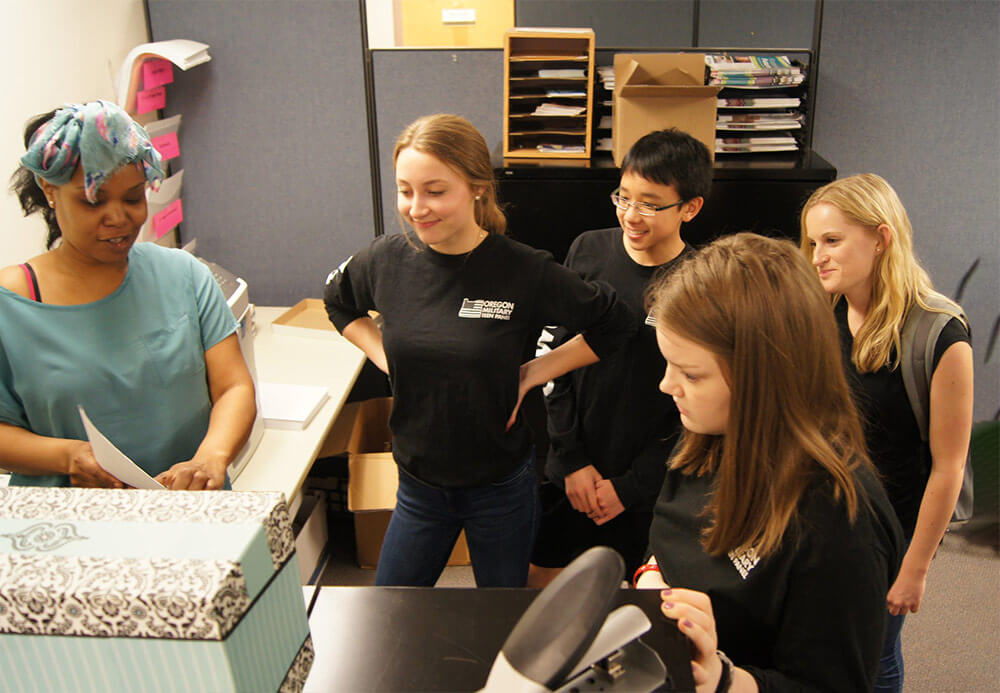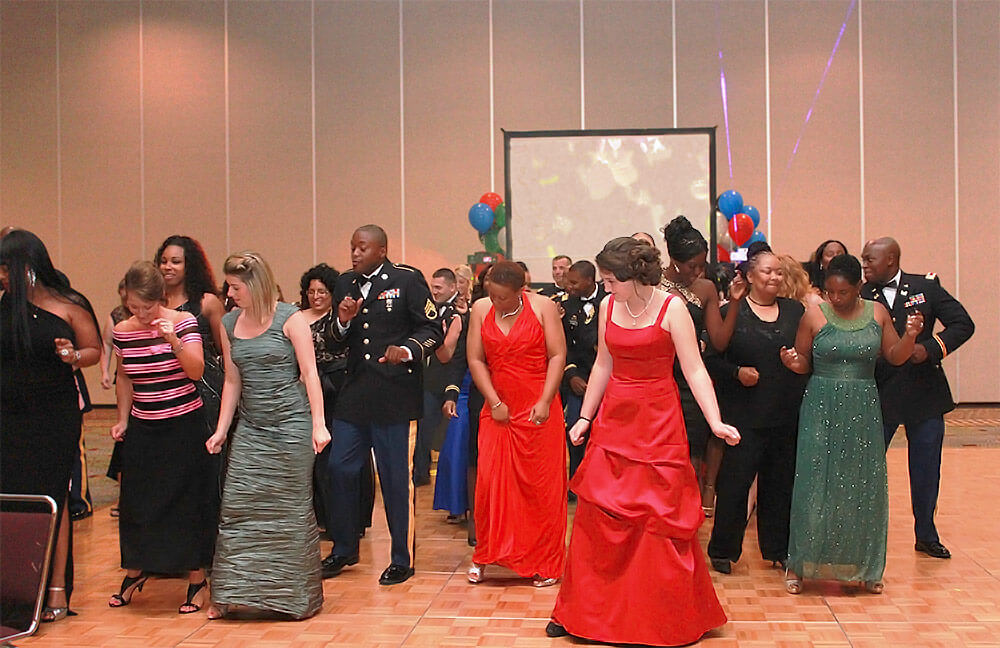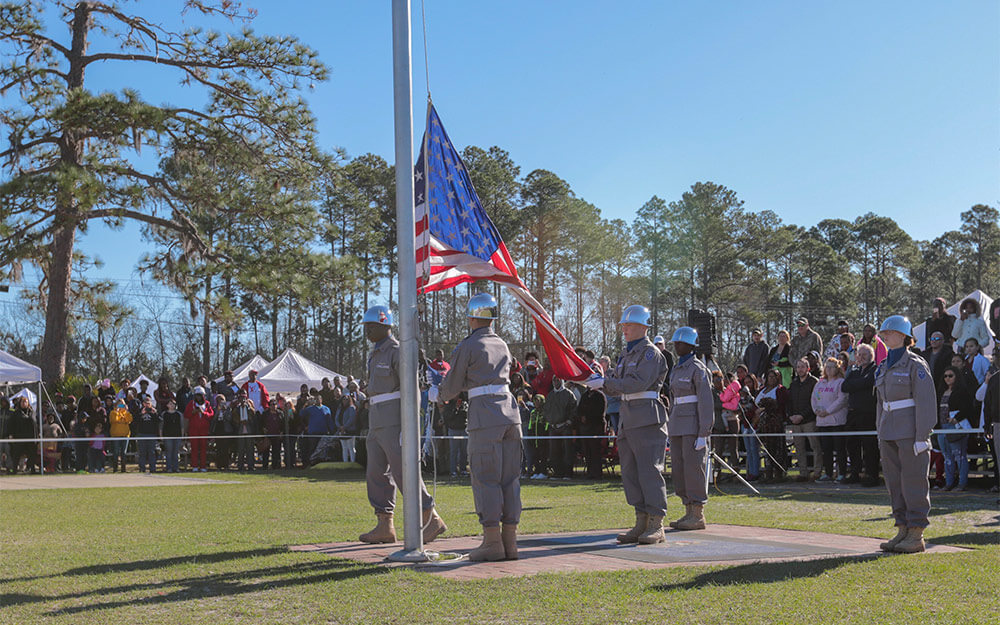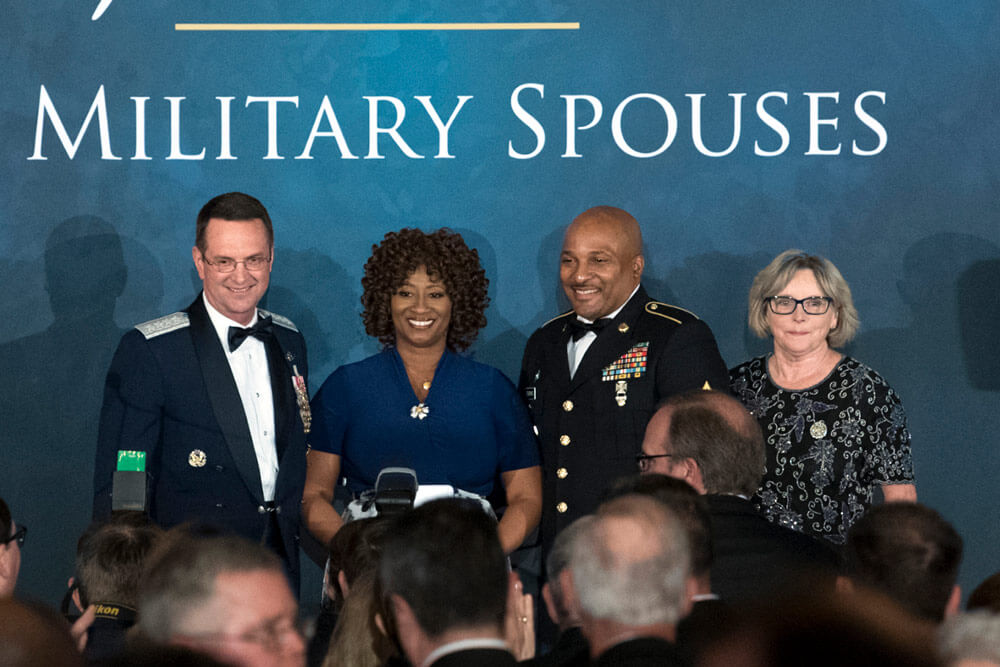Inspire Community Activity and Involvement
Teenagers get criticized a lot. They are sometimes described as being self-focused – obsessed with their phones and status on social media. They are accused of being removed, relying too heavily on technology instead of getting out and connecting with the world in person. But many of today’s young people prove these generalizations to be inaccurate. For example, National Guard teens who serve as members of a National Guard State Teen Panel.
As part of a State Teen Panel, teenaged children of National Guard Service Members not only make connections with one another, but also with their community at large. A component of the National Guard Family Program and the National Guard Child and Youth Services, State Teen Panels are designed to connect, support and inspire National Guard youth at the local level. Participating teens form a delegation to discuss issues and concerns faced by Guard youth today. The panels also participate in community outreach and volunteer events, plus provide feedback to National Guard leadership on many teen-oriented programs offered within the Guard. These teens work together, learning valuable life skills while contributing to their community.
Each school year, the National Guard Teen Panel – made up of teen representatives from the State panels – establishes an overall activity theme. Based on the national theme, the State panels build their Guard community and community-at-large service projects.
The long-term skills gained by teens who participate in the National Guard Teen Panels will not only help them as they navigate their teen years as part of a military family, but also as they navigate through adulthood.
Most importantly, teens who participate in service organizations, such as the State Teen Panel, learn that, despite the sometimes-negative view of their generation, they have a valuable perspective and an important voice, and that when people of any age come together to do good, they can make a difference.
Below is just a sampling of the efforts completed by National Guard State Teen Panels.
- The Kansas National Guard Teen Panel spent a morning helping harvesters in Topeka fill more than 5,000 bags of produce.
- Members of the Massachusetts National Guard Teen Panel created a college preparedness seminar guide. Different from traditional college fairs, the guide offered tips on how National Guard youth throughout their State could hold informational events discussing opportunities and funding available to National Guard Youth.
- The Minnesota National Guard Teen Panel constructed toy boxes to be sold or given away by Habitat for Humanity.
- New York National Guard Teen Panel members held an outreach program directed toward high school guidance counselors, providing them with information on the National Guard and the Teen Panel program.
- The Wisconsin Army National Guard Teen Panel, together with Teen Panels in 19 other States, test piloted a program to help teens build resiliency by participating in workshops focused on life skills such as self-awareness, critical thinking and relationship building.
To be considered for membership on a National Guard Teen Panel, teens must be National Guard dependents age 13–17, meet academic requirements and complete an application that includes an essay, a letter of recommendation and a description of previous involvement in voluntary and community activities. For more information, contact your State’s Child and Youth Services Program Coordinator. A listing of State coordinators can be found at JointServicesSupport.org/spn.
By Staff Writer David Majors



